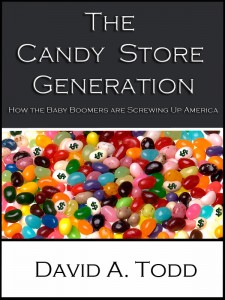
Last week I posted my book review on John Locke’s first treatise on government, promising to come back “soon” for a review of the second treatise. Here I am for that purpose. I made a slight digression, as I obtained Filmer’s Patriarcha and have allowed myself the distraction of reading it some.
In his second treatise, Locke is trying to say why government is established, and how, and how it is changed. I found his descriptions tedious. Again, how much of this was the archaic language and structure, how much my distracted reading, how much my small-screen device I don’t know. A future, second reading is on the unwritten to-do list.

Photo reference: Public Domain, https://commons.wikimedia.org/w/index.php?curid=399928
Locke started by saying his first discourse had proven that Adam had no special authority to rule over all the earth, nor did his immediate or later heirs, that there was no right of succession, and that even if there had been a right of succession we have lost the line of succession; hence, what do we do? Did he prove that? I’ll have to re-read the first treatise to decide.
His conclusion, however, I can agree with: “…it is impossible that the rulers now on earth should make any benefit, or derive any the least shadow of authority from that [Adam and the right of succession]” and thus “all government in the world is the product only of force and violence, and that men live together by no other rules but that of beasts, where the strongest carries it, and so lay a foundation for perpetual disorder and mischief, tumult, sedition and rebellion….” Therefore, mankind “just of necessity found out another rise of government, another original of political power, and another way of designing and knowing the persons that have it, than what Sir Robert Filmer hath taught us.”
Locke then sets out to describe and prove this process in 219 pages (in my copy). In chapter 2 he describes the State of Nature. In chapter 3 it’s the State of War. He discusses Slavery in chapter 4. This interested me. On the slavery-freedom continuum, where Filmer came down on the end that is slavery, Locke comes down on the end of freedom.
“The natural liberty of man is to be free from any superior power on earth, and not to be under the will or legislative authority of man, but to have only the law of nature for his rule.” Locke’s Second Treatise, Chapter 4, section 22
I like Locke’s position. Given opposite ends of the continuum, all men are slaves (except for the king) or all men are free, I agree that all men are free. This seems more natural than that all men are born slaves, subject to the one man who has dominion over all.
I could go on and on. Locke talks of Property in chapter 5 and the right to defend it. His discussion of Paternal Power in chapter 6 is a blur to me. Moving to Political or Civil Society in chapter 7, Locke held my interest a little more. This phrase, “man in society”, shows up in the writings of our Founding Fathers. It’s the buzz word of the day for mankind not living alone, but with other men, and thus having to modify behavior so as to live at peace.
The latter is part of Locke’s system of government that I need to know better. I’m sure I’ll re-read this book. I may, perhaps, read Filmer all the way through first, and maybe Hobbes, now that I have both in my possession.
The American Founding Fathers liked Locke. I need to too. I’m not really there yet. As I re-read some of the second treatise in preparation for this review, it seemed clearer to me. I was able to focus on Locke’s premises and arguments, rather than just read the words. Maybe there’s hope for me yet in understanding these books.
Do I recommend anyone else read these books? I don’t, at least not yet. Perhaps in a few months, or maybe a year, I’ll have finished a second read and will revisit this in a post.


